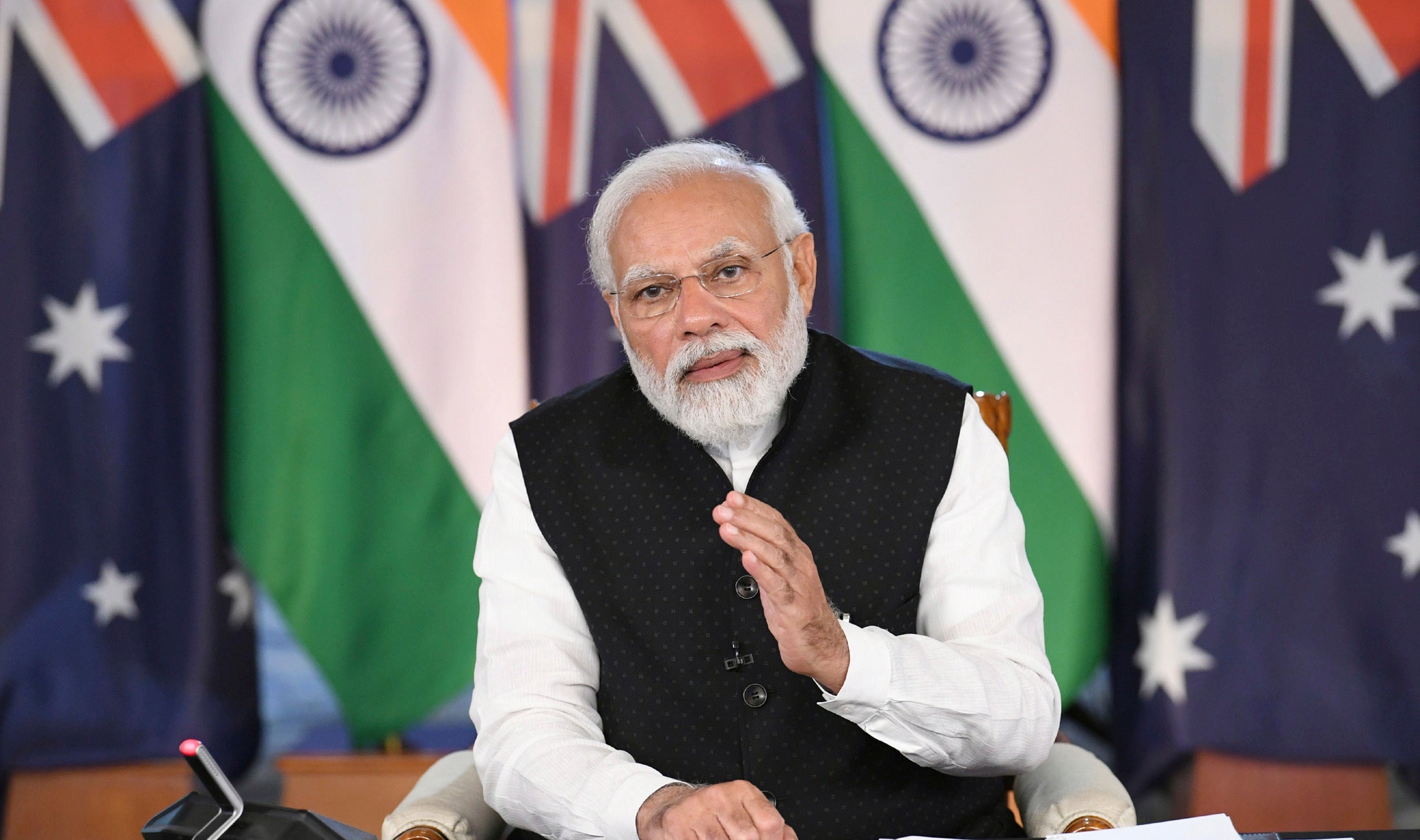India inks trade pact with Australia to counter China as calls grow for country to take stand on Russia
India’s pact with western ally Australia comes amid the Ukraine invasion over which pressure mounts on the country to take a stand

Your support helps us to tell the story
From reproductive rights to climate change to Big Tech, The Independent is on the ground when the story is developing. Whether it's investigating the financials of Elon Musk's pro-Trump PAC or producing our latest documentary, 'The A Word', which shines a light on the American women fighting for reproductive rights, we know how important it is to parse out the facts from the messaging.
At such a critical moment in US history, we need reporters on the ground. Your donation allows us to keep sending journalists to speak to both sides of the story.
The Independent is trusted by Americans across the entire political spectrum. And unlike many other quality news outlets, we choose not to lock Americans out of our reporting and analysis with paywalls. We believe quality journalism should be available to everyone, paid for by those who can afford it.
Your support makes all the difference.India has signed a trade deal with Australia as pressure mounts on the country to take a stand on Russia’s Ukraine invasion, and as both countries seek to counter the influence of China in the region.
India’s pact with western ally Australia, called the Australia-India Economic Cooperation and Trade Agreement, was signed on Saturday in a virtual ceremony by Australia’s trade minister Dan Tehan and his Indian counterpart Piyush Goyal.
It comes as Russia’s invasion of Ukraine invasion has seen India remain neutral. The country has instead consistently called for a diplomatic solution to end the crisis.
Just days before the agreement was signed, India was visited by the foreign ministers of Britain and Russia on the same day in a bid to put pressure on the country to take a stand on the invasion.
Both Australia and India, however, share a common factor in that they have strained relations with China. The countries are also members of the Quad grouping that also counts the US and Japan as members, seen as a significant threat by China to its influence.
Just a week earlier, a visit from Chinese foreign minister Wang Yi to India yielded no results, with India stating in no uncertain terms that its ties with China would continue to remain “disturbed”.
On Saturday, the prime ministers of both the countries, Scott Morrison and Narendra Modi, praised the pact after it was signed.
“This is a watershed moment for our bilateral relations. On the basis of this agreement, together, we will be able to increase the resilience of supply chains, and also contribute to the stability of the Indo-Pacific region”, Mr Modi said of the deal.
Mr Morrison added that the agreement with India represents “one of the biggest economic doors there is to open in the world today”.
“These are never all or nothing deals as far as we’re concerned, we see all of these as the next step and the next step and the next step”, he told reporters in Tasmania.
Mr Modi said the agreement would help facilitate the exchange of students, professionals and tourists with the aim of expanding work, study and travel opportunities between the two nations.
The deal proposes to remove tariffs on more than 85 per cent of Australia’s exports to India. Tariffs on sheep meat, wool, copper and coal among other goods will be removed, while 96 per cent of Indian imports to Australia will come duty free.
Mr Morrison said the agreement would create trade diversification opportunities for domestic producers and service providers bound for India, valued at up to $14.8bn each year.
“This agreement has been built on our strong security partnership and our joint efforts in the Quad, which has created the opportunity for our economic relationship to advance to a new level”, he said.
Join our commenting forum
Join thought-provoking conversations, follow other Independent readers and see their replies
Comments